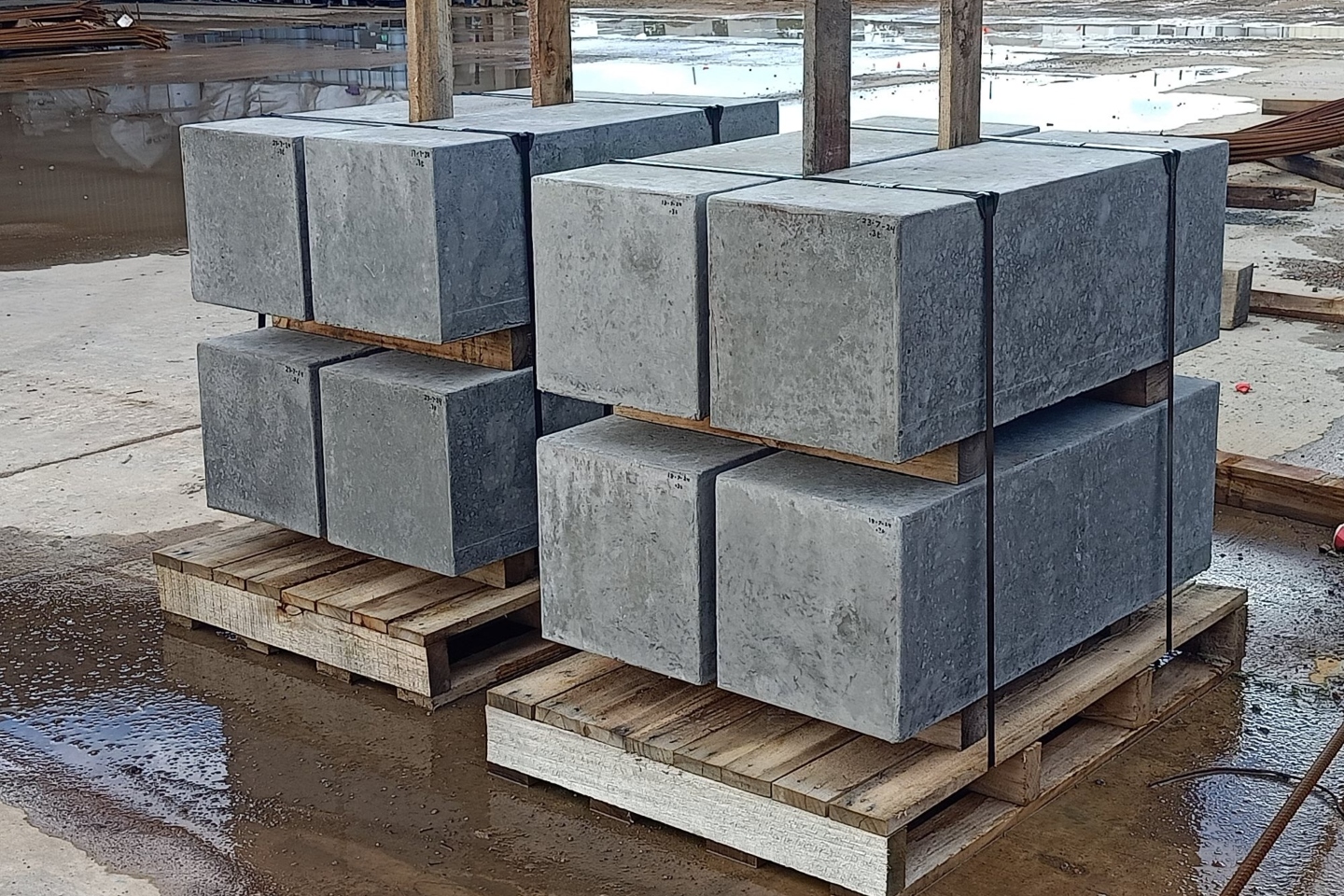Suvo Strategic Minerals has raised $2 million in a heavily-oversubscribed placement to develop and commercialise its low-carbon green cement product, with the owners of WA’s premier supplier of pre-cast concrete products, PERMAcast, kicking in $300,000 to join the register. Suvo holds a worldwide intellectual-property (IP) license for its “Geopolymer” cement that is manufactured using what would traditionally be waste streams from other industries.


Suvo Strategic Minerals has raised $2 million in a heavily-oversubscribed placement to develop and commercialise its low-carbon green cement technology with the owners of WA’s premier supplier of pre-cast and pre-stressed concrete products, PERMAcast, kicking in $300,000 to join the register.
PERMAcast is owned by successful Perth businessmen Mario Casotti and Alberto Ferraro. The company’s list of projects that it has supplied pre-cast concrete products into reads like a who’s who of major projects developed in WA over the last decade or so. They include Elizabeth Quay, Optus Stadium, the Mitchell Freeway extension and the Gorgon and Wheatstone gas projects to name just a few.
Casotti is also well known in the agricultural industry as a grower, packer and marketer of apples, pears and stone fruit and the owner of multiple orchards around WA.
Ferraro’s day job is to run PERMAcast.
Suvo holds a world-wide IP license for its “Geopolymer” cement that is considered a green-alternative and 100 per cent replacement for traditional cement products.
Suvo’s process involves creating a chemical reaction from traditional waste streams such as nickel slag, fly-ash from coal and others with a view to manufacturing a finished cement product that does not require typical environmentally unfriendly roasting in a high temperature kiln.
The latest capital raise consists of 41,666,666 shares priced at 4.8c per share, gift-wrapped with one free option for every two shares subscribed for. The options are exercisable at 7.5c within two years from the issue date.
Suvo’s testwork has turned nickel slag, a waste product of nickel pig iron production, into a high-strength, low-cost and low-carbon cement.
Management says positive lab testing at its recent trials held in conjunction with Makassar State University (UNM) in Indonesia achieved a compressive strength of 37.5 megapascals (MPa) after just seven days.
The slag, which is commonly stockpiled or committed to landfill, was provided by PT Huadi Nickel-Alloy Indonesia (PT HNI) from its nickel pig iron operation in South Sulawesi.
PT Huadi Nickel-Alloy Indonesia (PT HNI) is one of Indonesia’s biggest nickel producers and stockpiles significant quantities of nickel slag.
A co-operation agreement has been entered into by the two parties for the purpose of considering a commercial arrangement such as a partnership venture or offtake agreement for the nickel slag, which importantly, comes with a zero-carbon footprint.
Suvo has conducted multiple tests and determined that the best waste products for the conversion process are those highest in alumina silicate, which includes nickel slag.
The company’s wholly-owned subsidiary, Climate Tech Cement, will identify and characterise various industrial by-products from several big miners.
Suvo Strategic Minerals executive chairman Aaron Banks said: “The funds from the placement enables the Company to further advance the opportunity with PT Huadi and progress the important second trials after successfully creating a geopolymer cement binder using a zero-carbon nickel slag. The Company hopes to formalise a commercial arrangement with PT Huadi in the near term.”
The company also has 100 per cent ownership of the Pittong Kaolin project near Ballarat in Victoria, the sole wet kaolin mine and processing facility in Australia, that has been operating since 1972. The project contains a mineral resource of 5.5 million tonnes of kaolin, providing potential for a multi-decade operation.
Suvo is planning to begin studies on a low-cost processing method to produce metakaolin, a highly-reactive form of kaolin with the potential to be used as a supplementary cementitious material (SCM).
SCM’s are commonly used as partial replacements, generally up to 40 per cent, for traditional Portland cement – the world’s most common form of cement product. Metakaolin can accelerate the setting time of concrete, aid in its early age strength and it is considered an eco-friendly building material.
According to reports from Allied Market Research, a U.S firm offering research across 10,000 niche markets for the past decade, the forecast for the global concrete market in 2030 is US$972 billion (AU$1.455 trillion), with current cement production of about four billion tonnes expected to grow to five billion in the next decade.
Suvo is looking to set up satellite cement plants alongside industrial waste streams from processed minerals that have the right mineralogy for the making of its green cement. The ultimate goal is to bag and ship cement around the world that is green in nature and cost competitive.
Is your ASX-listed company doing something interesting? Contact: matt.birney@businessnews.com.au












